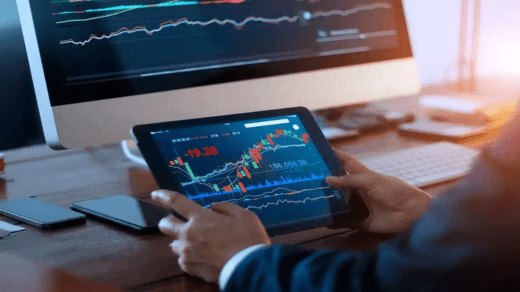
Certainly, here are 15 points discussing the pros and 15 points discussing the cons of trading psychology, particularly in terms of overcoming fear and greed:
Trading Psychology – Pros:
- Emotional Control: Developing strong trading psychology helps traders maintain emotional control during volatile market conditions.
- Improved Decision-Making: Overcoming fear and greed leads to better decision-making based on analysis rather than emotions.
- Consistency: A stable trading psychology promotes consistency in trading strategies and execution.
- Risk Management: Trading psychology encourages effective risk management, reducing the likelihood of large losses.
- Stress Reduction: Managing emotions reduces stress and anxiety associated with trading.
- Patience: A strong psychological foundation cultivates patience, preventing impulsive trades.
- Long-Term Success: Trading psychology is vital for long-term trading success.
- Adaptability: Traders with good psychology can adapt to changing market conditions.
- Learning from Mistakes: A healthy mindset allows traders to learn from their mistakes and not repeat them.
- Confidence: A confident trader can stick to a trading plan even when faced with adversity.
- Conservative Approach: Trading psychology discourages reckless and overly aggressive trading.
- Mental Resilience: Traders can bounce back from losses and setbacks with the right psychological outlook.
- Focus: Overcoming emotional biases helps traders stay focused on their goals.
- Psychological Support: A trading community can offer psychological support and camaraderie.
- Self-Reflection: Good trading psychology encourages self-reflection and continuous improvement.
Trading Psychology – Cons:
- Emotional Biases: Fear and greed can lead to emotional biases that cloud judgment.
- Impulsive Decisions: Emotional trading often results in impulsive and hasty decisions.
- Loss Aversion: Traders may fear losses more than they desire gains, leading to risk aversion.
- Overconfidence: Overconfidence can lead to risky trading behavior and overestimation of skills.
- Revenge Trading: Emotional reactions to losses can lead to revenge trading, increasing losses.
- Burnout: Constantly managing emotions can lead to mental and emotional burnout.
- Psychological Pressure: The pressure to succeed can negatively impact psychological well-being.
- Stress-Induced Health Issues: Trading stress can contribute to health problems if not managed.
- Confirmation Bias: Emotional traders may seek out information that confirms their preconceived beliefs.
- Lack of Discipline: Fear and greed can erode discipline, leading to rule-breaking.
- Gambler’s Mentality: Emotional traders may develop a gambler’s mentality, seeking excitement over consistent profit.
- Short-Term Focus: Fear and greed often lead to a short-term focus, neglecting long-term goals.
- Paralysis Analysis: Fear of making mistakes can lead to overthinking and missed opportunities.
- Herding Behavior: Emotional trading can result in following the crowd, leading to losses during market panics.
- Psychological Bias: Emotional biases can lead to biased interpretations of market information.
In summary, trading psychology plays a crucial role in a trader’s success or failure. Overcoming fear and greed is essential for rational decision-making, risk management, and maintaining a disciplined approach to trading. However, it requires constant self-awareness and practice to mitigate the negative impacts of these emotions. Traders should focus on developing a strong psychological foundation to enhance their chances of success in the financial markets.


